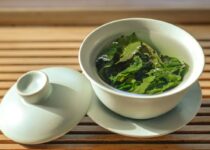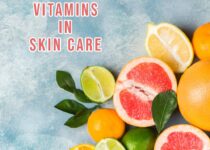The Need For Daily Application of Sunscreen For Face
Why Do You Need Sunscreen For Face?
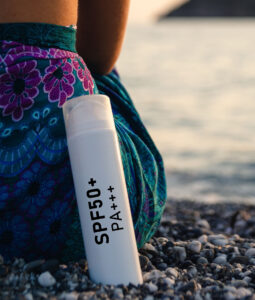
The Koreans have been attributing their glassy, flawless skin to using sunscreen for face since young. Sunscreen is one of the few skin care products that is an open secret to keeping your face looking youthful and wrinkle-free for years. Young Koreans are trained to apply sunscreen since young in their skin care routine to maintain a longer-lasting youthful appearance. Even dermatologists agree that sunscreen for face is an important weapon to prevent many issues caused by sun damage.
But it is always a challenge to find that good sunscreen that is compatible with your skin. So, in this post, we are going to discuss the importance of using sunscreen for face to protect yourself against ultraviolet (UV) rays as well as how to choose the right sunscreen.
What Are the Different UV Rays That Cause Damage To Our Skin?
Before we discuss the importance of applying sunscreen for face, we must differentiate between the three main types of UV rays: UVA, UVB, and UVC.
- UVA Rays: These rays are to blame for premature aging. Dermatologists believe that about 80-90% of skin wrinkles or aging are caused by extended exposure to UVA rays. UVA rays interfere with collagen and elastin in your skin. They also release free radicals that accelerate wrinkles growth, aging, brown spots, discoloration, and hyperpigmentation. What is even scarier is that UVA rays can penetrate through glass and clouds, meaning they are more potent than UVB.
- UVB Rays: They are mainly responsible for burning, but they may also cause some skin complications, such as skin cancer. Generally, UVB rays have shorter wavelengths, so they may not penetrate deeply into the skin as UVA rays. So, their main focus is on the epidermis, which makes it red and sore.
- UVC Rays: These rays have the shortest wavelength, meaning that they don’t penetrate as deeply into the skin and the above two. So, their impact is almost negligible.
Chemical vs Mineral Sunscreens
Sunscreen protects from UV rays via chemical or mineral filters.
- Chemical Sunscreen
Chemical filters absorb UV rays, break, and releases them as heat through some form of a chemical reaction. Chemical filters contain organic carbon-based ingredients such as oxybenzone, octinoxate, avobenzone, homosalate, octisalate, and octocylene. Chemical sunscreen allows UV rays to penetrate the skin. When these UVs are in contact with the organic carbon-based ingredients, some “magical” reaction happens. These reactions transformed the UV rays into heat which then released from the skin.
- Mineral Sunscreen
Mineral or physical blockers provide a physical barrier on the skin. Mineral sunscreens contain titanium dioxide or zinc oxide. These substances sit on the skin when applied and deflect the sunray away. In this way, the UV rays are blocked from penetrating the skin.
Is It Good To Put Sunscreen On Your Face Every Day And Even At Home?
Some people dread the thought of wearing sunscreen every day, while many others wear it during the summer months. If there is something you should not avoid in your skin care routine, it is to wear sunscreen for your face every day throughout the year, even if you are indoors. Remember, ultraviolet rays that cause skin damage are always present, irrespective of whether it is cold or hot. And they are not blocked by clouds.
True, the intensity of UVB rays may vary during the day, making it easier to avoid sometimes, but UVA rays can be as harmful on a rainy day just like it is on a sunny or cloudy day. For this reason, you may be exposed to UVA rays, even when indoors.
Also, keep in mind that burning is just a consequence of short term intense sun exposure. The real skin damage happens due to continuous exposure of UVA rays, which may be invisible to the naked eyes.
How to Choose A Sunscreen?
- SPF and PA
Look for a broad-spectrum sunscreen with protection on UVA and UVB.
Normally, I would prefer to go for SPF30, PA++ sunscreen.
The higher SPF value provides higher protection. However, you do not need an above SPF50 protection, as the marginal increase in protection is negligible. Know that you won’t get any better results by wearing sunscreen with the highest SPF. Some people may assume that by using a sunscreen product with SPF 100 is twice as effective as using the one with SPF 50. Usually, an SPF15 is good to go.
PA+ and PA++ are good for medium protection against UVA, while PA+++ is used for protection against very strong UVA .
- Chemical Vs Mineral Filters
The 2nd factor when choosing a sunscreen is picking between a chemical or mineral filters.
- Chemical Filters
The advantages of chemical sunscreen are didn’t leave a white cast, tend to be more lightweight and non-sticky, and is easy to apply, though it takes about 20 minutes for it to be effective.
People with a sensitive skin condition, you may need to be more careful when choosing chemical sunscreen. This is because chemical sunscreen changes the UV rays into heat and the heat has the tendency to cause redness on the skin. The chemical ingredients may also cause allergies to sensitive skin and worsen melasma and rosacea skin conditions.
Chemical filters also have the tendency to clog pores, thus making it less suitable for the acne-prone skin condition.
There are also studies on chemical ingredients of homosalate, octisalate, and homosalate being potentially harmful and can cause hormonal imbalances. Thus, it is advised against the use on children, pregnant and breastfeeding woman.
Chemical sunscreen is found to be toxic to coral reefs and some beaches have banned the use of chemical sunscreen. You may have to go for mineral sunscreen for the purpose of swimming, surfing and diving in the ocean.
- Mineral Filters
On the other hand, mineral sunscreen tends to be labeled as a “cleaner and safer” option. It contains less harmful ingredients, doesn’t cause irritation, offers immediate protection upon application and it is ocean-friendly.
However, mineral sunscreen texture tends to be thicker and the ingredients sit on the skin. It is harder to apply but works almost immediately.
Mineral sunscreen may also cause breakout on acne-prone skin. To remedy this, Dr. Jennifer L. MacGregor, MD, a board-certified dermatologist at Union Square Laser Dermatology in New York City, recommends combination sunscreen products that have anti-acne additives such as niacinamide.
The mineral filter also tends to leave a white cast on the skin, which is not a preference to some.
To choose the right sunscreen for face, you need to understand the condition of your skin, your own preference on the ingredients and its texture as well as the types of activities that you do.
Regardless of mineral or chemical sunscreen, it is important to use it daily. Choose a sunscreen that has broad-spectrum and apply every 2 – 4 hours for effective protection against the sun.
Some of the sunscreens of the Korean skin care line:
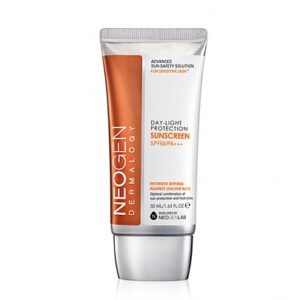
The Neogen Protection Sunscreen is formulated with SPF50, hydrating, and protects against UVAs and UVBs, yet does not clog pores. Giving you all day long protection.
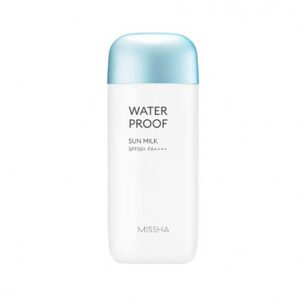
The Missha All Around Safe Block Waterproof Sun Milk gives broad-spectrum protection. It doesn’t cause any grease residue or white cast. It finishes with a soft matte and is perfect under makeup. The Missha Waterproof Sun Milk is water-resistant and is suitable for watersports.
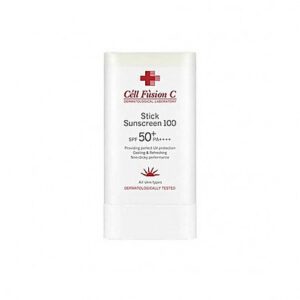
The Cell Fusion C Stick Sunscreen is a chemical sunscreen with SPF 50+/PA++++. It’s cooling and refreshing while offers protection against harmful UV rays.
